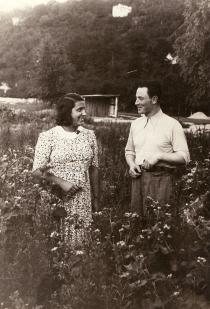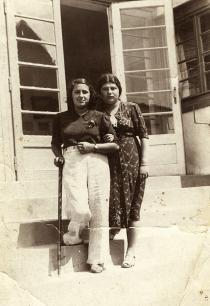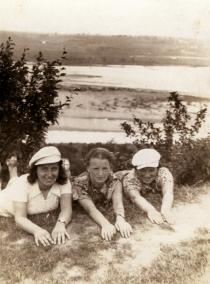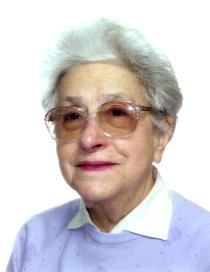Chana Szwarc with her friend
My father, as I said, was a watchmaker. In the summer, my father always went to Kazimierz [resort town on the Vistula, some 100 km south of Warsaw], there was work there. People dropped their watches into water, into sand, you had to clean them. And that's why Kazimierz is like a second home town for me. I always spent the whole summer there. After I had gone to work, I took a free leave in the summer and was able to spend two months in Kazimierz. Mother went with us, chiefly because of me, because I was very sickly. She was always worried I'd stop eating in Kazimierz and get even thinner. And I hated the beach, to this day I don't like baking in the sun. In the water I felt cold, on the beach I felt hot, I lost my appetite. My mother could sit on the beach for hours, she loved the sun.
Kazimierz was also a Jewish town. It was inhabited almost solely by Jews. There were some Poles there, but those were rather the peasants from the nearby villages. The soil there was excellent. But I saw how the peasants lived. The peasant ate a chicken only when he was dying or when the chicken died, if he slaughtered a pig, he salted the meat and stashed it away in a barrel for winter, for Christmas. Normally they ate fatback. Or used the blood to make blood sausage. The peasants were poor.
There was a family that went by the name of Gorecki there, the grandmother was a converted Jewess - she fell in love, married a Pole. And the whole family had the characteristic looks - black hair and blue eyes. We lived with her in the summer. I was very bold - perhaps too bold - and one day I asked her whether she didn't regret having changed her religion, living among the Poles. And she told me, 'Well, you know, my child, yes and no.'
Though Jewish, Kazimierz was a clean town. There was a disastrous flood in 1933. And the market square, which is far above the Vistula level, was all flooded.































































